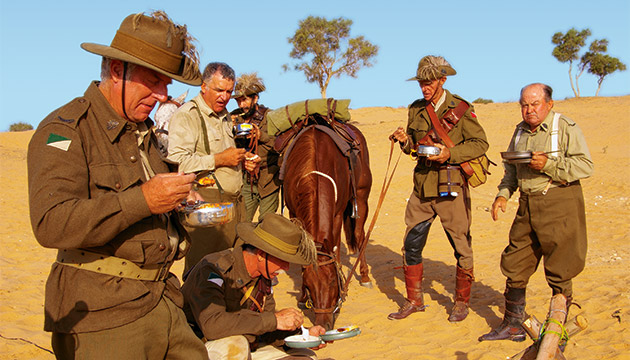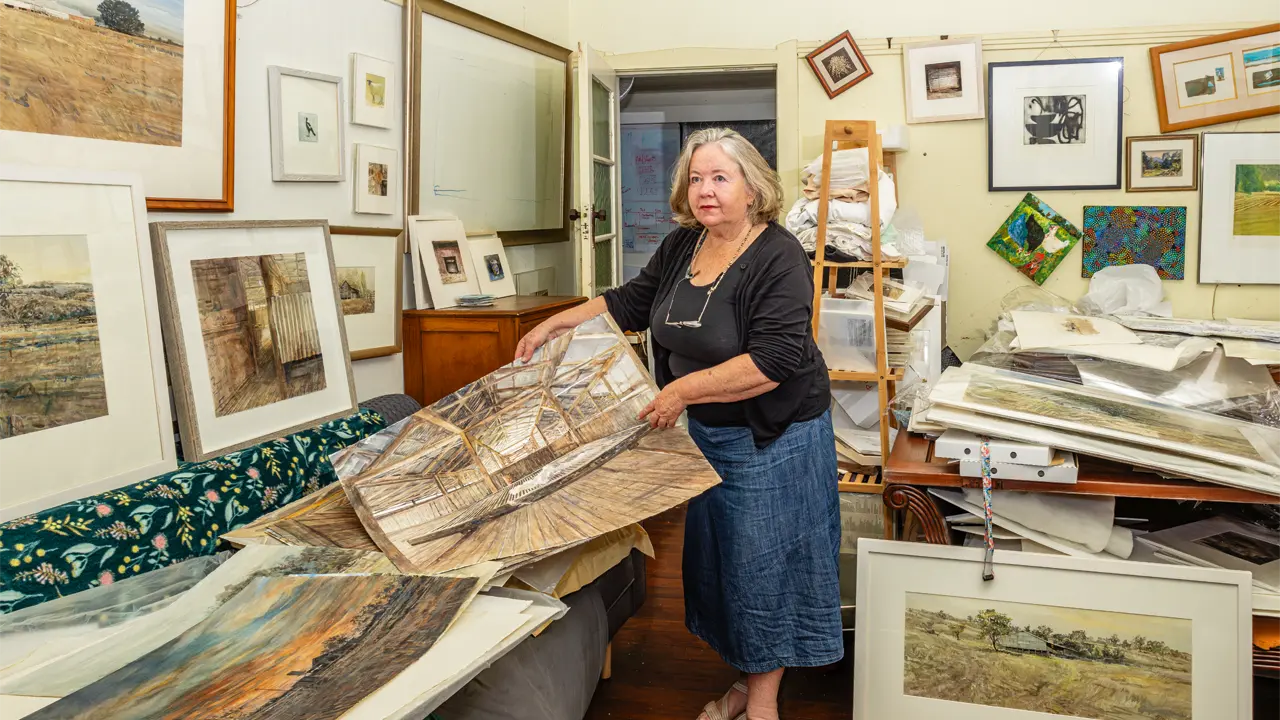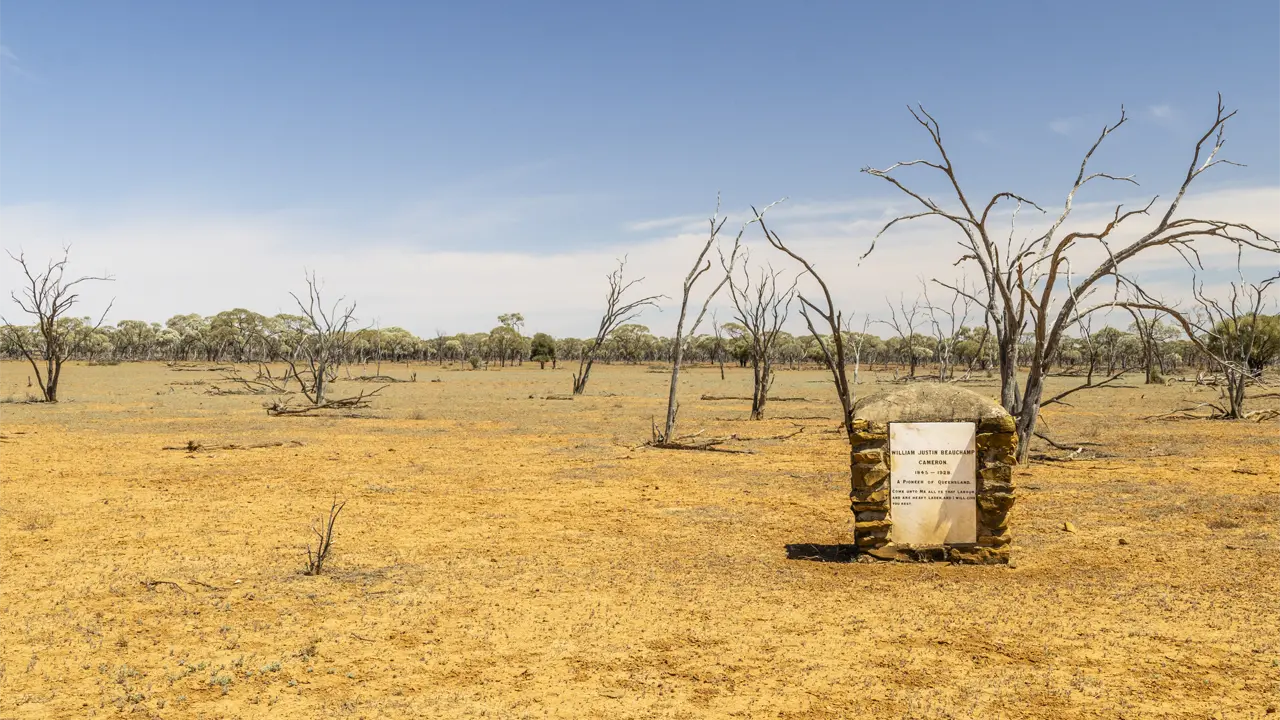Ninety years on from the battle of Beersheba, members of the Australian Light Horse Association ride the Israeli desert where so many Australians lost their lives.
Story By Emma Mulholland
After six hours in the saddle the Light Horse riders dismount. The dust they’ve been kicking up all day settles in their ears and woollen battle jackets, and in the coats of their weary horses. Despite the sweltering heat of the day, nights in the Israeli desert are cold. The older men and women retire to bed and try to find sleep between two thin army blankets and some ground sheets. In the distance they hear jackals howling. The young ones stay up late drinking beer, playing two-up and singing Roll Out the Barrel, and other old songs that many their age will never know.
At five in the morning, members of the Australian Light Horse Association (ALHA) are woken by the haunting call of a bugle’s Reveille. Altogether there are 70 representatives from the ALHA, an Australia-wide organisation dedicated to remembering the feats of the Australian Mounted Division. Among them are General Sir Harry Chauvel’s (see ‘Along for the ride’, Issue 54) granddaughter and six more descendants of those who rode with the Mounted Division through the same parts of the Negev Desert from Shelall to Beersheba some 90 years ago. For their forefathers, the trip was anything but a holiday.
After a baked-bean breakfast dished up in authentic World War I mess tins, the group – aged between 18 and 80 – read through Anzac diary heirlooms. They read of a young man who lost his five mates in combat. Days later, when the group arrives at the British Commonwealth Cemetery in the town of Beersheba, they find his five mates – somehow, in the chaos of war, they were buried side by side.
“A story was read out about a couple of Turkish men who were captured and sent out to collect firewood without a guard, in the hope that they would escape and report back to Turkish lines the standard of the Anzac equipment, and the troops’ morale. But the men didn’t run away – they returned with heaps of firewood,” Coleen Edgar, of Walgett, NSW, says. “You realise the humane side of the war when you’re reading these everyday perspectives.”
Coleen’s father rode with the Light Horse Brigade in World War II and, though he has never said much about the war, Coleen made the pilgrimage to Israel as a way of honouring his service. “You’ll never understand what they went through, but now I know where they were, where the Turks were and what they did,” she says. “Being here, you just realise the futility of war.”
This story excerpt is from Issue #57
Outback Magazine: Feb/Mar 2008









